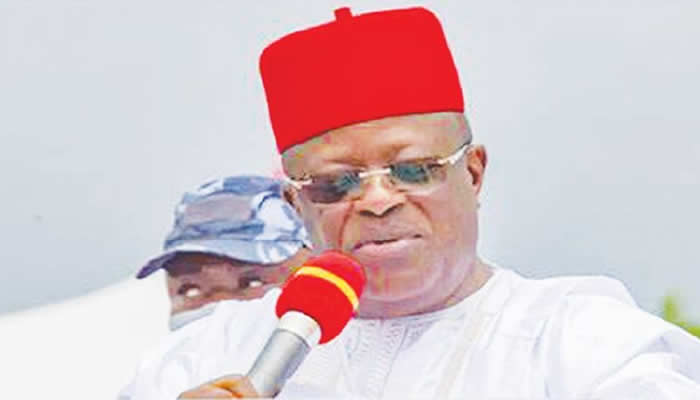The Abuja-Keffi-Akwanga-Lafia-Makurdi road, a vital artery connecting central Nigeria to the north-central region, experienced a significant disruption due to heavy rainfall and subsequent flooding. This unfortunate event forced President Bola Tinubu to cancel a planned visit to Yelwata, Benue State, where he intended to commiserate with the community following a tragic incident that claimed the lives of over 100 individuals. The flooding, which rendered the road impassable, highlighted the critical need for improved infrastructure maintenance and disaster preparedness along major transportation routes.
Works Minister David Umahi, taking swift action, expressed profound apologies for the disruption caused by the flooding, particularly the embarrassment it caused the President. He placed the responsibility for the incident on the private concessionaire, China Harbour Operations and Maintenance Company, which manages the tolled road under the Highway Development and Management Initiative (HDMI). Umahi pointed out that despite collecting tolls, the company had failed to adequately maintain the roadway, leading to the accumulation of debris that blocked a culvert and caused the flooding. He ordered the immediate deployment of ministry officials and engineers from China Harbour to rectify the situation and implement a lasting solution.
Following the incident, rapid response efforts were initiated. Ministry officials and personnel from the concessionaire worked diligently to clear the debris and restore the flow of water, enabling the affected section of the road to be reopened for traffic. However, Minister Umahi made it clear that this reactive approach was insufficient. He emphasized the importance of proactive measures and directed the concessionaire to conduct a thorough investigation into the root causes of the flooding. This investigation is expected to inform the development and implementation of a permanent solution to prevent similar disruptions in the future. The minister underscored the government’s commitment to holding private operators accountable for the proper maintenance of federal roads.
Beyond the immediate crisis, the incident sparked a broader discussion about infrastructure financing and public-private partnerships. Minister Umahi, keen to leverage opportunities for investment in critical projects, engaged with Citibank Nigeria Ltd., exploring potential partnerships under the Renewed Hope Legacy Initiative. This initiative aims to revitalize key infrastructure across the country, and the minister viewed Citibank as a potential partner in realizing this vision. He highlighted the importance of these projects to President Tinubu’s development agenda and emphasized the significant role private sector investment could play.
Citibank’s Managing Director, Nneka Enwereji, expressed the bank’s interest in supporting the government’s infrastructure development efforts. Impressed by the administration’s commitment to reforms and infrastructural improvements, Enwereji indicated Citibank’s willingness to explore investment opportunities that would have a positive impact on the country. The bank pledged to delve into the specifics of the proposed projects and identify areas where their investments could be most effective. This potential partnership exemplifies the government’s strategy of attracting private sector capital to fund critical infrastructure projects, complementing public resources and accelerating development.
President Tinubu, despite the unfortunate disruption to his schedule, acknowledged the situation and expressed his commitment to addressing the underlying issues that led to the flooding. He emphasized the need for environmental restoration and infrastructure improvements in the affected area. His understanding of the situation and his promise to take action resonated with the affected communities and reinforced the government’s dedication to addressing the challenges faced by its citizens. Minister Umahi, echoing the President’s sentiments, commended his leadership and concern for the people of Benue State, expressing hope for lasting peace and progress in the region. The incident, while disruptive, served as a catalyst for discussions about infrastructure investment and the importance of robust public-private partnerships in driving national development.


